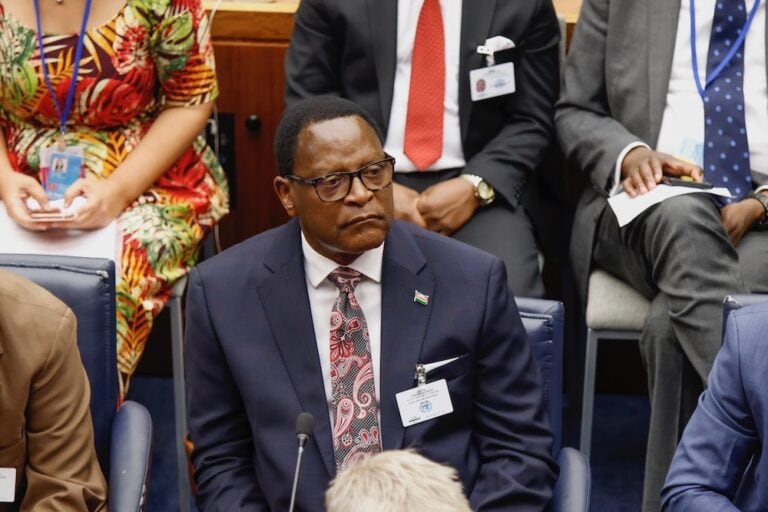Journalist Patricia Kayuni was attacked by protestors while she was covering a demonstration in Chitipa in northern Malawi.
This statement was originally published on cpj.org on 14 January 2020.
Malawian authorities should conduct a thorough and transparent investigation into the assault of journalist Patricia Kayuni and ensure that those responsible are held to account, the Committee to Protect Journalists said today.
On January 10, a group of protesters approached Kayuni, a reporter for the Roman Catholic Church-owned radio station Tuntufye FM, while she was covering a demonstration in Chitipa, in northern Malawi, and demanded that she stop taking photos, the journalist told CPJ via messaging app.
When Kayuni explained that she was not taking photos, and said her phone battery was dead, some of the protesters beat her with sticks, kicked and punched her, pulled her hair, and tried to rip off her clothes, she said. One person hit her phone with a metal rod and broke it, Kayuni told CPJ.
Protest organizers intervened and brought Kayuni to police officers, who then fired tear gas to disperse the crowd and brought Kayuni to a local hospital, where she was treated for her injuries and for an asthma attack she suffered during the incident, Kayuni said. She told CPJ she has swelling over her body and has a headache from the attack.
“Malawian police must identify and arrest the demonstrators who beat up Patricia Kayuni and ensure that they are held accountable for assaulting an unarmed journalist who was simply doing her job,” said Angela Quintal, CPJ’s Africa program coordinator. “If they fail to do so, the police will be signaling to the perpetrators that there are no consequences when it comes to attacks against journalists.”
The protesters were demonstrating against the Malawi Revenue Authority, a government agency that protesters allege collected high taxes but failed to fix roads in Chitipa, according to news reports.
Masozi Kasambara, a reporter with the privately owned Zodiak Broadcasting Station, who covered the protest alongside Kayuni, told CPJ via messaging app that he took photos of blockaded roads and detained protesters, but was too afraid to take photos of the demonstrators in action, as they were “too hostile.”
Kasambara said the group who attacked Kayuni were mostly teenagers who were armed with stones, sticks, and catapults. The protesters claimed that Kayuni was a police officer sent to photograph demonstrators, and proceeded to attack her, Kasambara said.
“It was emotional and violent. It happened so fast that there was no time to think,” he said.
Dave Msongole, a leader of the Concerned Citizens of Chitipa, a local activist group that organized the protest, similarly told CPJ via messaging app that the attackers suspected Kayuni was a police officer. He said that protest organizers attempted to protect Kayuni from the attackers.
Chitipa police spokesperson Gladwell Simwaka told CPJ via messaging app that police condemned the attack and would ensure that those responsible would be brought to justice. He said no arrests had been made, but police were engaging the community to prevent such attacks in the future.
CPJ has published Safety Notes with recommended techniques and methods for journalists covering civil unrest.



